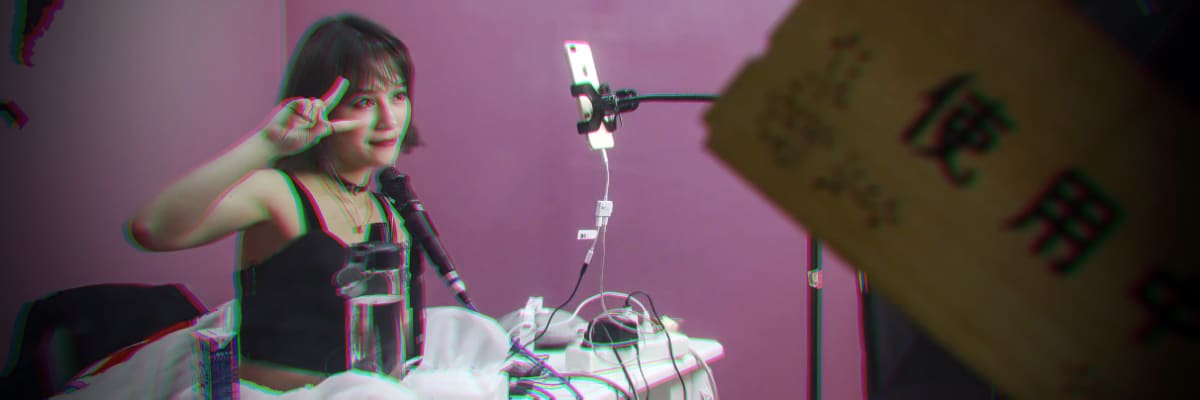TikTok is the social media of the moment. Its monthly active audience of 1.1 billion puts it in the top ranks of major global social platforms, after Facebook, Instagram, YouTube and WeChat, but its demographics make it the go-to app for the younger generation: Millennials and Zoomers.
Initially known for hosting influencers, both affirmed and amateur, who produced and distributed neutral videos, e.g., focused on dancing, food recipes, and video game sessions, TikTok gradually evolved into the mirror of those born after 1990 and hosted an increasing number of sociopolitical content. An evolution that has been accompanied by fierce criticism, not only in the West, and that has led the app to take on the appearance of a super psy-op.
A unique algorithm, an unprecedented cognitive warfare
The unique algorithm, which allows anyone in perspective to be able to gain a large popular following and monetize in the same time, has made TikTok famous among contemporary trendsetters and opinion-makers, the so-called influencers, attracting the attention of big brands, small businessmen, wannabe millionaires and narcissists desperate for attention.
Instant video sharing, i.e., the instant sharing of content, is the hallmark of TikTok, which functions according to the pattern of record, share, viralize, and (with any luck) monetize. Scheme that makes TikTok a kind of digital social elevator and also makes it, when employed for hybrid warfare purposes, an exceptional spreader of disinfodemics.
The reasons for the controversies surrounding this app were enumerated and explained in the dossier on cognitive wars and the subsequent analysis focusing on the processes of induced intoxication that TikTok would be able to produce in users. But one phenomenon had not been explored in depth: the key-role played by influencers, Chinese and otherwise, in conveying hoaxes and self-destructive and mind-numbing challenges, in viralizing conspiracy theories and subliminally promoting Beijing's political agenda.
China has demonstrated its understanding of the extraordinary potential of influencers, priests without a cassock who are able to sell products, services and, above all, ideas to their followers. That is why the same influencers who in China perform national pedagogical tasks, using their social channels to promote patriotic values, on TikTok pursue radically different goals toward Western and non-Western audiences: to confuse, convert, dumb down, sexualize. Goals that have prompted several countries to ban the app from their digital marketplace, accusing it of undermining the health of the social fabric.
The made-in-China consensus factories
TikTok, certainly since 2019, but perhaps since its launch on the global market, has been relying on the crucial daily contributions of thousands of influencers who operate within buildings entirely dedicated to recording and packaging their content: influencer farm.
Influencer farms are ultra-accessorized realities in which content producers have at their disposal cameras, lights, make-up, televisions, and everything else they need, and whose existence followers ignore: they will see their idols recording from what they think is their room, unaware that it is a set.
Influencer farms have greatly optimized the timelines for the production of both ordinary and psy-op products, ensuring that TikTok has tighter control of influencers on the payroll and higher quality of their content. The success of these factories in whose assembly lines ideas are built and then sold to consumers in China and around the world has been such that it has legitimized their opening outside mainland China as well: from Southeast Asia to Indonesia.
That of the newly established influencer farms is not only a multi-billion-dollar industry, that guarantees Beijing monthly fixed ten-figure revenues-from rent from influencers-but it is also one of the secrets of the success of TikTok's psychological operations, which, thanks to this system as dystopian as it is futuristic, are being churned out on an industrial scale.
Defending against malicious influencers
Recognizing an ordinary influencer from an influencer farm employee is possible. First of all, one key element must be clarified: although essentially based in China and the Far East, these dystopian idea factories employ influencers of all nationalities, favoring those of Western origin because of their ability to reach, and more importantly convince, much larger segments of the public than their Asian counterparts.
Influencer from Western countries are recruited to promote specific content essential to the provocation of social meltdown phenomena in the realities bombarded by their incessant psy-op campaign, and it is not difficult to recognize them: their videos publicize and indoctrinate to fourth-wave feminism, gender ideology, critical race theory, ultra-progressivism, and thus in general to all forms of wokeism, alternating periodic and curious field invasions into international politics in which they demonize the United States, conveying the narrative that it is on the verge of civil war and in the midst of social collapse, and praise China.
Precisely because they are Westerners, therefore above suspicion, these maligned influencers achieve eye-popping numbers: the most capable can generate over a hundred million views in a short time.
It is not only from the contents that it is possible to identify Beijing's undercover propagandist agents. The Daily Caller, for example, in August 2023 uncovered the real identity of an influencer seemingly ordinary, albeit bizarrely focused on producing woke content attacking marriage, masculinity, and male-female relations, by means of a detailed analysis of the location used to shoot the videos.
Awareness, critical spirit, and active skepticism are the three elements that can enable anyone, even ordinary users, to distinguish popularized or opinionated content from a psychological operation. Because cognitive wars, like the Devil, are hidden in the details.
Geopolitical analyst, foreign policy consultant and author. Graduate in Area and global studies for international cooperation (University of Turin), educated between Italy, Poland, Portugal and Russia. Specialized in hybrid warfare, Latin American issues and post-Soviet space.









Scrivi un commento